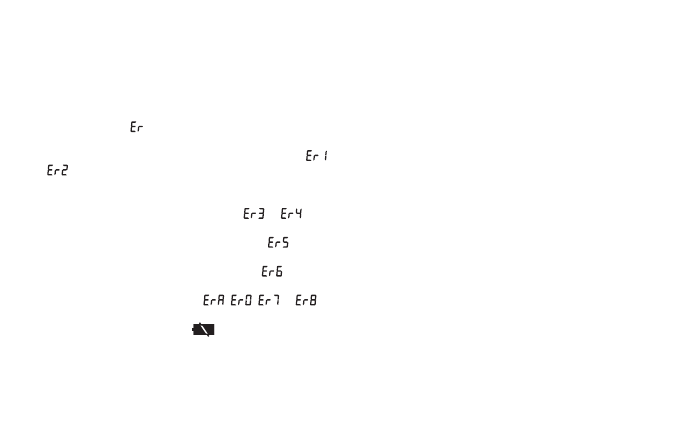Error messages / trouble-shooting, Cleaning and care – Beurer BM 44 User Manual
Page 22

22
If the values for systolic and diastolic pressure are in two
different WHO ranges (e.g. systolic in the high-normal range
and diastolic pressure in the normal range) the graphic WHO
classification on the unit indicates the higher range (high-
normal in the example described).
6. Error messages / trouble-shooting
In case of faults, the _ message appears in the display.
Error messages may appear if:
• systolic or diastolic pressure could not be measured (
or
appears on the display)
• systolic or diastolic pressure was outside the measure-
ment range (“
Hi” or “Lo” appears on the display)
• the cuff is fastened too tightly or loosely (
or
ap-
pears on the display)
• the pump pressure is higher than 300 mmHg (
ap-
pears on the display)
• pumping up takes longer than 160 seconds (
appears
on the display)
• there is a system or device error (
,
,
or
appears on the display)
• the batteries are almost empty
.
In such cases, repeat the measurement. Ensure you do not
move or speak.
If necessary, re-insert or replace the batteries.
Technical alarm – description
Should the recorded blood pressure (systolic or diastolic)
lie outside the limits specified in the section “Technical
specifications”, the technical alarm will appear on the dis-
play indicating either “
Hi” or “Lo”. In such cases, you should
seek medical assistance and check the accuracy of your
procedure.
The limit values for the technical alarm are factory set and
cannot be adjusted or deactivated. These alarm limit val-
ues are accorded second priority under the standard IEC
60601-1-8.
The technical alarm is a non-locking alarm and must not be
reset. The signal shown on the display will disappear auto-
matically after about 8 seconds.
7. Cleaning and care
• Clean your device and cuff carefully only with a slightly
moistened cloth.
• Do not use any detergents or solvents.
• Never hold the instrument under water as otherwise liquid
can penetrate and damage the instrument.
• Never place any heavy objects on the instrument.